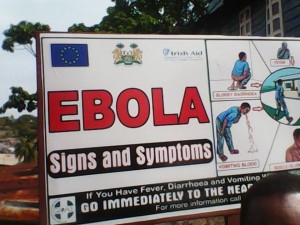By: Sean Curry
Celebration and relief is seen and felt throughout Atlanta as Dr. Kent Brantly, the second American Aid worker to contract Ebola, was declared officially cured of the virus and cleared for discharge from Emory University Hospital on Thursday. The other American to contract Ebola is Nancy Writebol, who was cured and discharged on Tuesday. Dr. Bruce Ribner of Emory University Hospital addressed the media about Brantly’s current condition, stating “Dr. Brantly has recovered from the Ebola virus infection and […] he can return to his family, to his community, and to his life, without public health concerns.”
Dr. Brantly took the stage to thank the doctors and nurses for the medical treatment he received but also capitalized on the opportunity to redirect the attention back towards the more important issue still occurring: the continuation of the spreading of the Ebola virus and suffering of the West African people. He states “I am glad for any attention my sickness has attracted to the plight of West Africa in amidst of this epidemic. Please continue to pray for Liberia and the people of West Africa. And encourage those in positions of power and influence to do everything possible to bring this Ebola outbreak to an end.” Brantly followed his speech with an extremely symbolic move by subsequently hugging each doctor and nurse who helped attend to his aid while he was sick, displaying both confidence and the proof needed to reassure the general public that he is cured.
While this has brought joy to some, many have become upset due to the seemingly unfair treatment of American’s who contracted Ebola as compared to what West Africans are receiving. Critics claim that because they are white and American they were given higher priority and treated with a higher quality of care. Others claim that the experimental drug Zmapp, which was confirmed as being used on both Brantly and Wristbol, was created so quickly for them and in such a minute quantity on purpose, due to the previously stated racial biases.
Doctor Xand Van Tulleken addressed these concerns in an interview on Aljazeera, stating that he believes the reason the two Americans were cured was due to a list of varying factors. The first being the fact that both survivors were healthy, well-fed, and in good physical condition, which is contrary to the malnourishment, malaria, AIDS/HIV, sickle cell disease, and various other diseases that many people of Africa must endure. Secondly, while both Americans did receive the experimental Zmapp drug, the drug is not believed to have played a serious role in the curing of the virus and has not been distributed widely yet because it still requires thousands of tests before any information or evidence can be confirmed as concrete. Lastly, the aid workers received adequate amount of water to keep them hydrated in order to combat the symptoms of vomiting and diarrhea; something many people of Africa struggle to acquire on a daily basis.
While Ebola continues to tighten its grip and expand across West Africa, a new Ebola-esque virus has appeared in the Democratic Republic of Congo. The World Health Organization reports that 592 people have been infected and about 70 have died due to this new disease. Fortunately the WHO also reports that this virus is significantly less lethal than Ebola, coming in at roughly 12 percent death rate versus Ebola at 60 percent. Several teams of representatives have been commissioned by various organizations, such as the WHO and the medical charity Doctors without Borders, to acquire samples to send back to their lab’s for testing and to gauge the seriousness of the outbreak. A party from Doctors without Borders has reported that it was too early to confirm what exactly the disease is and how dire the situation could possibly get.

